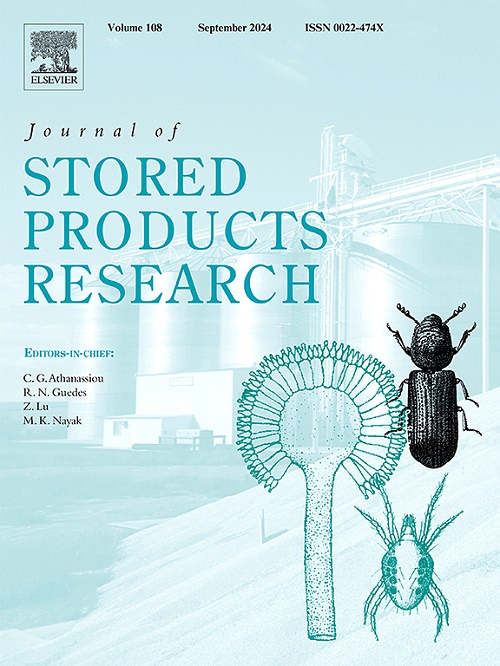Farmers' willingness to pay for hermetic storage bags: The effects of training and free trial
IF 2.7
2区 农林科学
Q1 ENTOMOLOGY
引用次数: 0
Abstract
Maize is a staple food for smallholder farmers in Africa, but poor postharvest management leads to high grain losses, contributing to food insecurity. Improved on-farm storage such as hermetic storage bags can reduce these losses, yet their adoption remains low. Full one-off subsidies can be an effective development policy to enhance technology adoption. However, policymakers are often opposed to such subsidies, arguing that it lowers willingness to pay (WTP) once the subsidy ends and thereby constrains the future market. Using the Becker-DeGroot-Marschak (BDM) mechanism to investigate WTP and building on a prior randomized control trial among smallholders in Tanzania, this study analyzes how prior free distribution influences long-term WTP for hermetic storage bags (six years later). Additionally, we analyze how offering a deferred payment option influences farmers’ WTP for hermetic storage bags. We find that the prior provision of free hermetic storage bags had decreased WTP. As an alternative intervention, we show that providing the opportunity to pay later increases WTP as compared to immediate payment. The study highlights that free technology provision may reduce future market engagement but a pay later option can be considered as a valuable policy tool for quick technology dissemination.
农民购买密封储物袋的意愿:培训和免费试用的效果
玉米是非洲小农的主食,但收获后管理不善导致粮食损失严重,加剧了粮食不安全。改进的农场储存方式,如密封储存袋,可以减少这些损失,但采用率仍然很低。一次性全额补贴可以成为促进技术采用的有效发展政策。然而,政策制定者通常反对这种补贴,认为一旦补贴结束,它会降低支付意愿(WTP),从而限制未来的市场。本研究利用Becker-DeGroot-Marschak (BDM)机制调查WTP,并在坦桑尼亚小农的先验随机对照试验的基础上,分析了先验免费分配如何影响密封储袋的长期WTP(6年后)。此外,我们分析了如何提供延期付款的选择影响农民的WTP为密封储存袋。我们发现先前提供的免费密封储存袋降低了WTP。作为一种替代干预措施,我们表明,与立即支付相比,提供以后支付的机会增加了WTP。这项研究强调,免费提供技术可能会减少未来的市场参与,但可将稍后付费的选择视为快速传播技术的宝贵政策工具。
本文章由计算机程序翻译,如有差异,请以英文原文为准。
求助全文
约1分钟内获得全文
求助全文
来源期刊
CiteScore
5.70
自引率
18.50%
发文量
112
审稿时长
45 days
期刊介绍:
The Journal of Stored Products Research provides an international medium for the publication of both reviews and original results from laboratory and field studies on the preservation and safety of stored products, notably food stocks, covering storage-related problems from the producer through the supply chain to the consumer. Stored products are characterised by having relatively low moisture content and include raw and semi-processed foods, animal feedstuffs, and a range of other durable items, including materials such as clothing or museum artefacts.

 求助内容:
求助内容: 应助结果提醒方式:
应助结果提醒方式:


